Through revolutionary periods with countless hardships and dangers, the Vietnam People's Public Security has continuously grown in all aspects, affirming its position as an important and core armed force in the cause of protecting national security, ensuring social order and safety (TTATXH), contributing greatly to the cause of building and protecting the Socialist Republic of Vietnam.
Strategic consulting, perfecting the legal system on national security protection and ensuring social order and safety.
Since its inception, the People's Public Security force has been imbued with the philosophy of "relying on the people" to work, fighting for the people, which is the premise for the formation of the first strategic thinking on public security work; summarizing practical experience into a scientific theoretical system, laying a solid foundation for public security work. The strategic advisory role was affirmed through important documents such as Directive No. 10-CT/TW (1950) on "The Party leads the Public Security", consolidating the principle of absolute, direct, and comprehensive leadership of the Party; 7 basic theoretical issues of the industry summarized at the 7th National Public Security Conference (1952) and approved by the Central Party Secretariat, becoming the professional handbook of the entire People's Public Security force.
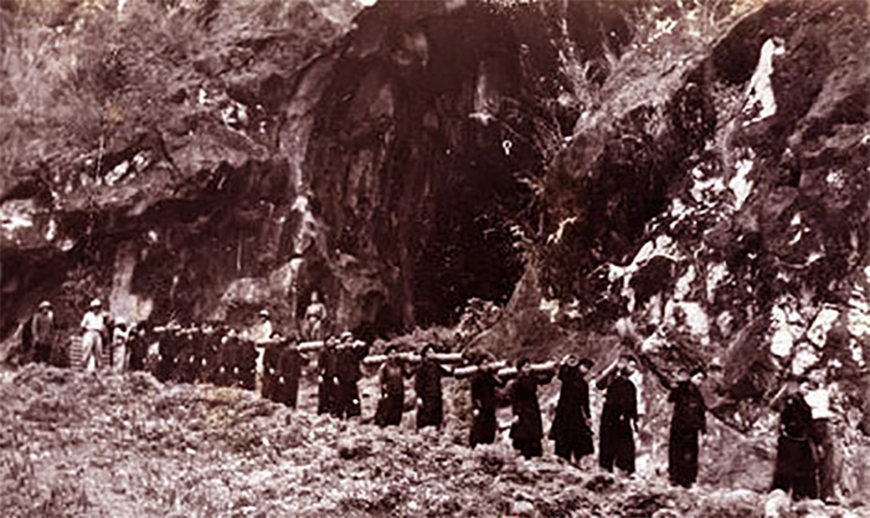 |
| People's Public Security Forces protect porters transporting goods to serve the Dien Bien Phu Campaign in 1954. Photo: Archive |
During the resistance war against the US to save the country, the People's Public Security Forces continuously advised the Party and the State to issue many important documents on the struggle to protect order and security, in accordance with the characteristics and tasks of each region. In particular, Resolution No. 39-NQ/TW dated January 20, 1962 of the Politburo on strengthening the fight against counter-revolutionary forces to better serve the cause of building socialism in the North and the struggle to achieve peaceful reunification of the country; Resolution No. 40-NQ/TW dated January 20, 1962 of the Politburo for the first time identified the People's Public Security Forces as armed and located in the security - defense area, raising its status and creating a legal basis and long-term strategic orientation for the entire force.
After the country was unified and entered the process of Renovation and deep international integration, the Public Security Forces proactively advised on the development of a system of important strategic directive documents of the Party on security and order with high theoretical and practical value, such as Resolution No. 31-NQ/TW dated December 2, 1980 of the Politburo on the task of protecting political security and maintaining social order and safety in the new situation, identifying 6 measures of public security work that demonstrated a comprehensive and profound vision, mobilizing the combined strength of the entire political system and the people to participate in protecting security and order. In particular, the Ministry of Public Security presided over the development and consultation of the National Assembly to promulgate many important laws, promptly institutionalizing the contents on security and order. Notably, in 2024, he presided over the drafting of 7 draft laws (Law on Road Traffic Order and Safety; Law on amending and supplementing a number of articles of the Law on Security Guards; Law on Prevention and Combat of Human Trafficking (amended); Law on National Defense Industry, Security and Industrial Mobilization; Law on Fire Prevention, Fighting and Rescue; Law on Data) submitted to the National Assembly and they were approved.
The sharp "sword" in protecting national security and ensuring social order and safety
Right from the early days of the revolutionary government, in extremely difficult conditions regarding organization and personnel, the People's Public Security Forces proactively proposed important orientations to build a revolutionary security foundation, with the motto of relying on the people to work, fighting for the people. A typical example is the feat of the People's Public Security Forces in the case at No. 7 On Nhu Hau Street (July 12, 1946), crushing the plot of the French colonialists in collusion with the Kuomintang to overthrow our government, protecting the young revolutionary government.
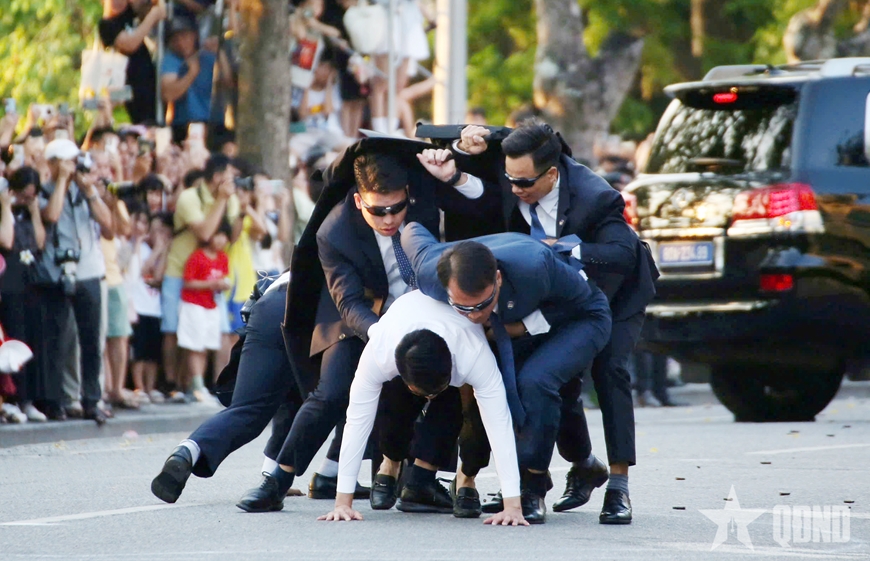 |
| Performance of the Guard force protecting and escorting VIPs. Photo: THAI HUNG |
During the resistance war against the French, the People's Public Security Forces did a good job of protecting the internal affairs, protecting the Party, state agencies, especially protecting the absolute safety of President Ho Chi Minh. The People's Public Security Forces discovered dozens of espionage cases, hundreds of spy rings, and suppressed reactionary organizations. During the resistance war against the US to save the country, the People's Public Security Forces had to undertake two strategic tasks at the same time: Maintaining political security in the North and being a "steel shield" for the revolution in the South, contributing directly to the success of the resistance war, especially in the historic Ho Chi Minh Campaign.
In the process of Innovation and international integration, the Public Security Forces proactively adapt to non-traditional security threats, transnational crimes, and high-tech crimes; resolutely fight to defeat all plots of "peaceful evolution", riots, and overthrow, firmly protect independence, sovereignty, territorial integrity, protect the Party, the State, and the socialist regime. Synchronously deploy solutions to prevent and combat all types of crimes. The work of preventing and combating corruption and negativity is promoted with the motto "no forbidden zones, no exceptions", "handle one case, alert the whole region", contributing to cleaning up the government apparatus and strengthening people's trust.
The Public Security Forces are pioneers in digital transformation to serve the people through the implementation of Project No. 06 of the Government on developing applications for population data, identification and electronic authentication. The provision of 24/7 online public services and 42 utilities on the VNeID application creates a major "breakthrough" in administrative reform, bringing practical benefits to people and businesses, contributing to the construction of a digital government and digital society. Absolutely ensuring security and safety of important political events and major international conferences, contributing to enhancing Vietnam's position in the international arena.
Building a brave, elite and modern People's Public Security force to meet revolutionary requirements
Building political and ideological forces is the top priority. In the current context of the risk of “self-evolution”, “self-transformation” and hostile forces focusing on destroying ideology, education on Marxism-Leninism, Ho Chi Minh thought, the Party’s guidelines and State laws is given special attention.
Regarding the organizational structure, the People's Public Security force is built in a streamlined, scientific manner in the direction of specialization. From the central to local levels, it is built in the direction of quality, concentration, and unity. In recent years, the Ministry of Public Security has pioneered the implementation of the policy of innovation and restructuring of the organizational structure according to Decree No. 01/2018/ND-CP dated August 6, 2018 and Decree No. 02/2025/ND-CP dated February 18, 2025 of the Prime Minister, reducing intermediate levels to be closer to the people, serving the people better.
The People's Public Security Force has built a team of elite officers and soldiers, strong in all aspects, with comprehensive and specialized knowledge, proficient in professional skills, and proficient in using working methods and means. Along with that, the People's Public Security Force is given special attention in building in a modern direction, keeping up with the development of the times, actively and proactively researching, applying science, technology and equipping modern means. Prioritizing investment in facilities and equipment for grassroots police and units directly fighting and preventing crime, modernizing a number of forces such as Intelligence, Cyber Security, Police, Cryptography, etc.
Building a solid "people's hearts" position in protecting national security
The “people’s hearts and minds battle” developed from the early days of the August Revolution in 1945. The People’s Public Security Forces, though still young, soon grasped and creatively applied the mass viewpoints of the Party and President Ho Chi Minh. Relying on the Viet Minh Front and national salvation organizations, the People’s Public Security Forces propagated and mobilized people to enthusiastically participate in self-defense organizations, contributing to the safety of the Independence Declaration Ceremony and the young revolutionary government.
 |
| Female Traffic Police practice for the parade at the 80th Anniversary of August Revolution and National Day September 2. Photo: THAI HUNG |
During the resistance war against French colonialism, the “people’s hearts” continued to be consolidated and developed through extensive movements such as the slogan “Three No’s” and the “Five Families in a row” movement… Next, the movements “Protecting public order” and “Secrets against spies” continued to be promoted in both regions, linked with emulation in production labor, building socialism in the North and the liberation struggle in the South, creating many advanced examples in the work of maintaining security and order at the grassroots level.
After the country's reunification, the People's Public Security Forces advised the Party and the State in building and organizing the mass movement to protect national security. The movement has developed extensively with diverse contents and forms, suitable for each region, promoting the creative capacity of the grassroots and the great potential of the entire population in the work of protecting national security and ensuring social order and safety.
An important turning point in consolidating the “people’s heart position” is the birth of the “National Day for National Security Protection” on August 19 every year. The purpose of the Day is to propagate and educate to help cadres, party members and people understand the meaning and importance, creating a new change in the awareness of Party committees and authorities at all levels towards security and order work. At the same time, diversifying the forms of gathering and mobilizing people to effectively participate in the movement, contributing to building a solid people’s security foundation and people’s security position at the grassroots level and maintaining the country’s political stability.
People's Public Security's foreign affairs firmly pave the way, protecting national interests early and from afar
Right from the early years of the resistance war against France, the Public Security Forces' foreign affairs work had sought support and assistance from socialist international security forces such as the Soviet Union, China, and Cuba, laying a solid foundation for international security cooperation later on. After the Great Victory in the Spring of 1975, the Public Security Forces' foreign affairs continued to develop. Cooperation with socialist countries remained the focus, especially in stabilizing the situation in the South. Cooperation with neighboring countries such as Laos and Cambodia was strengthened to resolve border security issues and combat transnational crimes.
As the country innovates, the Public Security's foreign affairs have gradually changed, becoming more aware of the importance of multilateral cooperation and diversifying partners; making great strides, truly affirming its role of "going ahead and paving the way" and becoming an inseparable part of the Party's foreign policy. Not only stopping at handling domestic security issues, but also proactively reaching out to the region and the world, grasping information, warning of risks early and from afar, contributing to preventing threats before they affect Vietnam.
The Public Security Forces have built a wide cooperation network with law enforcement forces of countries and territories. The signing of hundreds of bilateral agreements and treaties has created a solid legal corridor for cooperation in exchanging delegations, sharing information and experience in combating transnational crimes such as terrorism, drugs, human trafficking, high-tech crimes, money laundering, etc.
Colonel, Dr. NGUYEN THI LOI, Director of the Institute of Police History, Ministry of Public Security
Source: https://www.qdnd.vn/quoc-phong-an-ninh/tin-tuc/thanh-tuu-noi-bat-cua-cong-an-nhan-dan-viet-nam-trong-80-nam-xay-dung-chien-dau-va-truong-thanh-841488



![[Photo] President Luong Cuong attends special political-artistic television show "Golden Opportunity"](https://vstatic.vietnam.vn/vietnam/resource/IMAGE/2025/8/22/44ca13c28fa7476796f9aa3618ff74c4)
![[Photo] President Luong Cuong receives delegation of the Youth Committee of the Liberal Democratic Party of Japan](https://vstatic.vietnam.vn/vietnam/resource/IMAGE/2025/8/22/2632d7f5cf4f4a8e90ce5f5e1989194a)

![[Photo] Prime Minister Pham Minh Chinh chairs the conference to review the 2024-2025 school year and deploy tasks for the 2025-2026 school year.](https://vstatic.vietnam.vn/vietnam/resource/IMAGE/2025/8/22/2ca5ed79ce6a46a1ac7706a42cefafae)


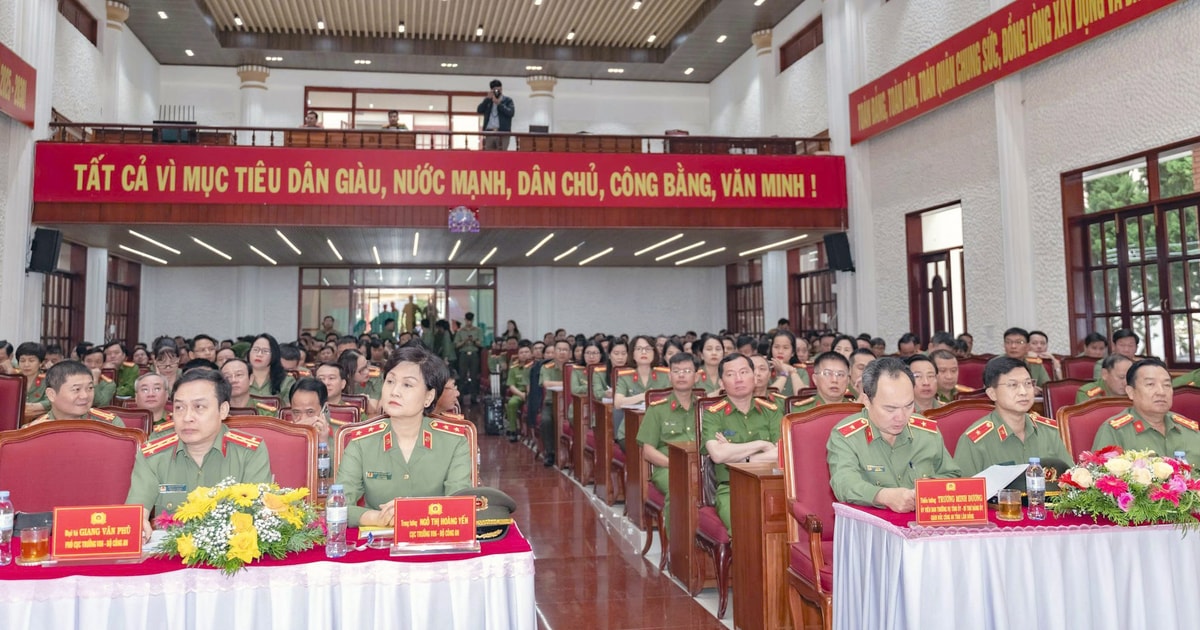

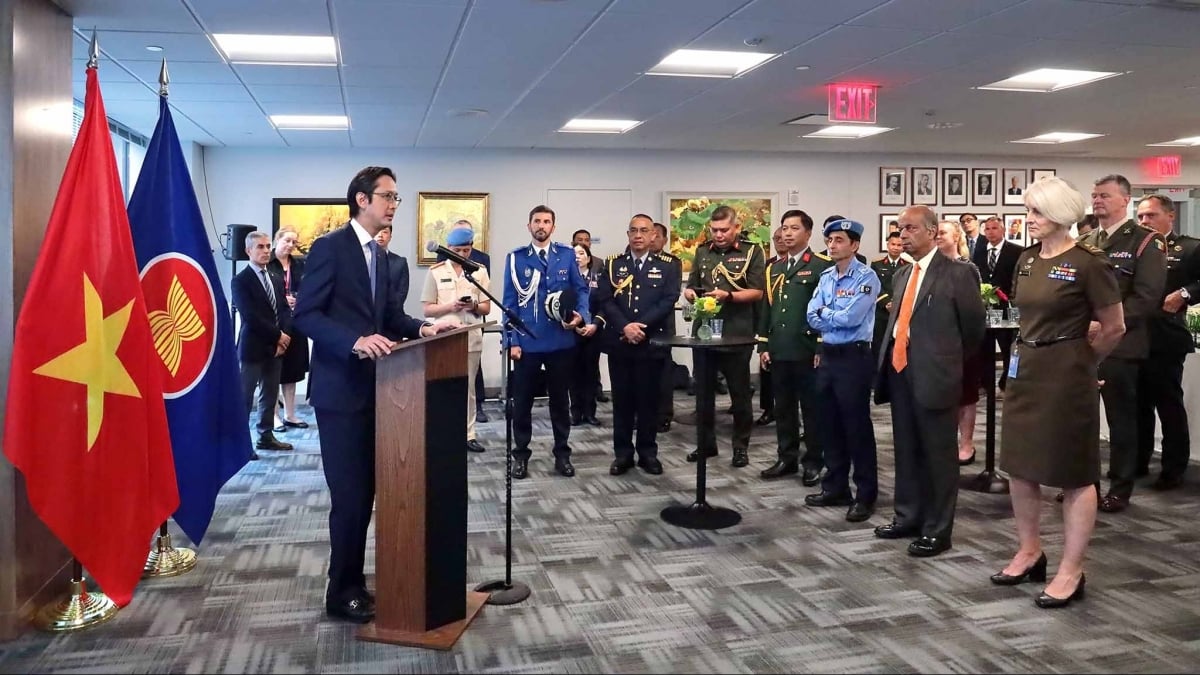



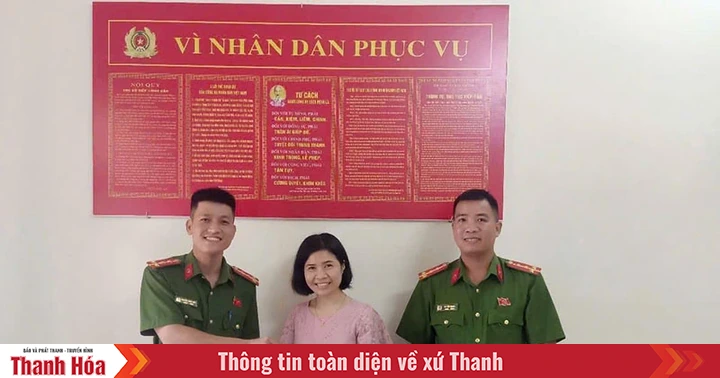



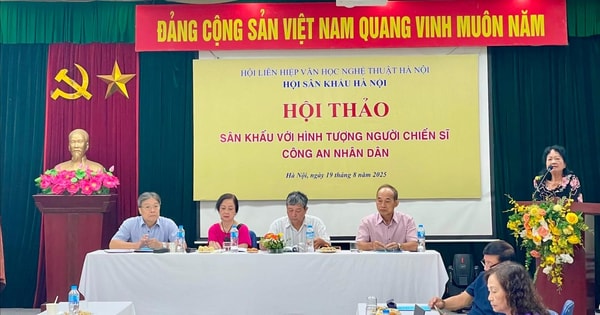

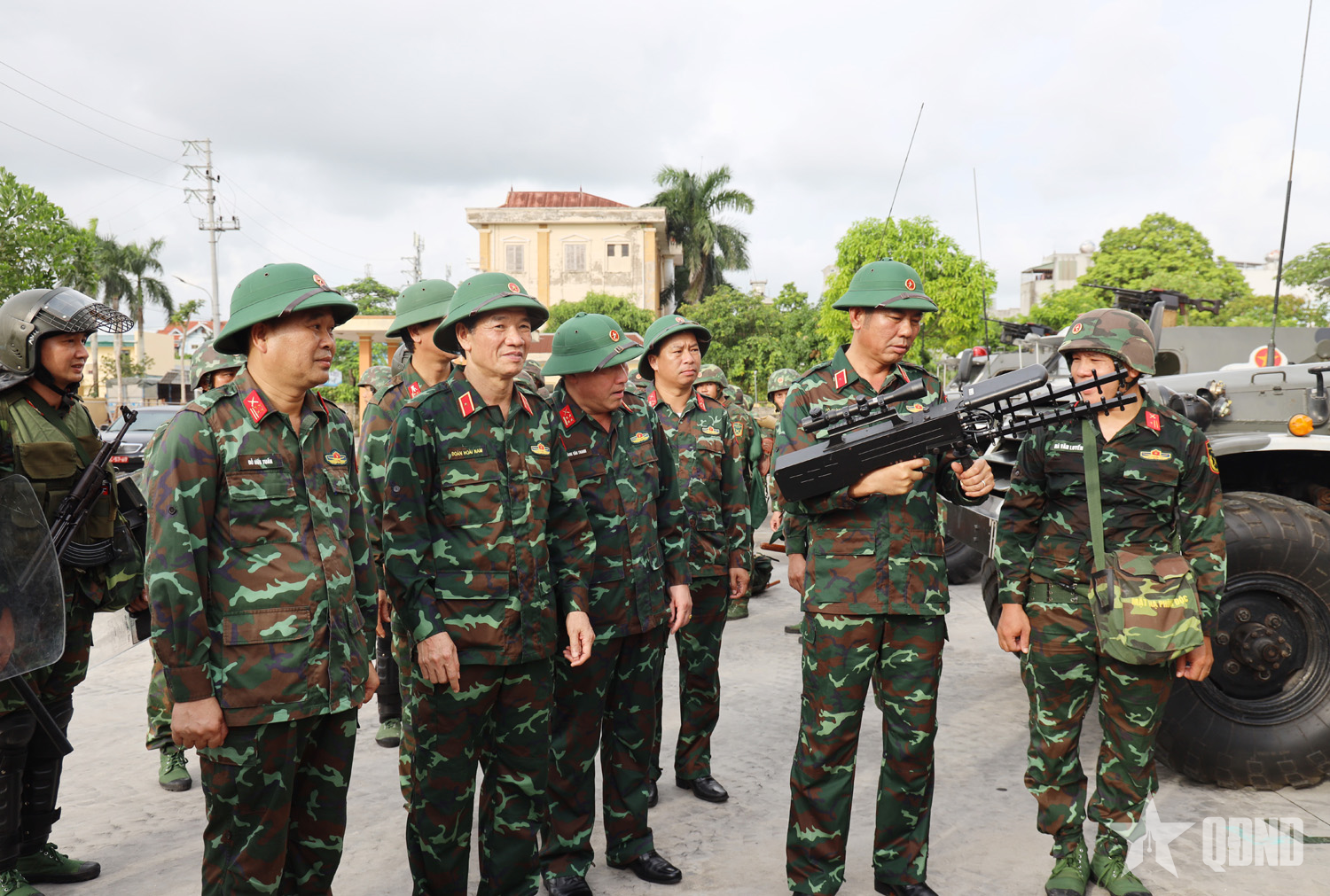
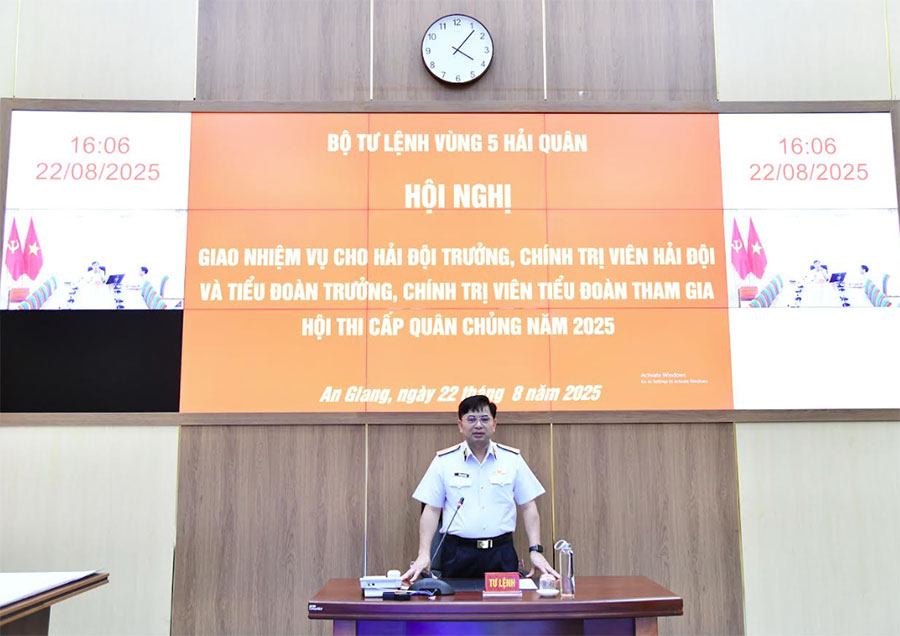
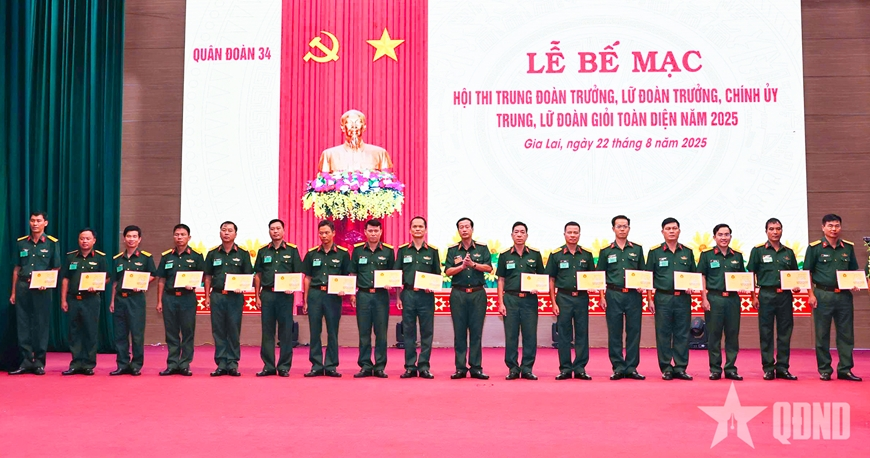
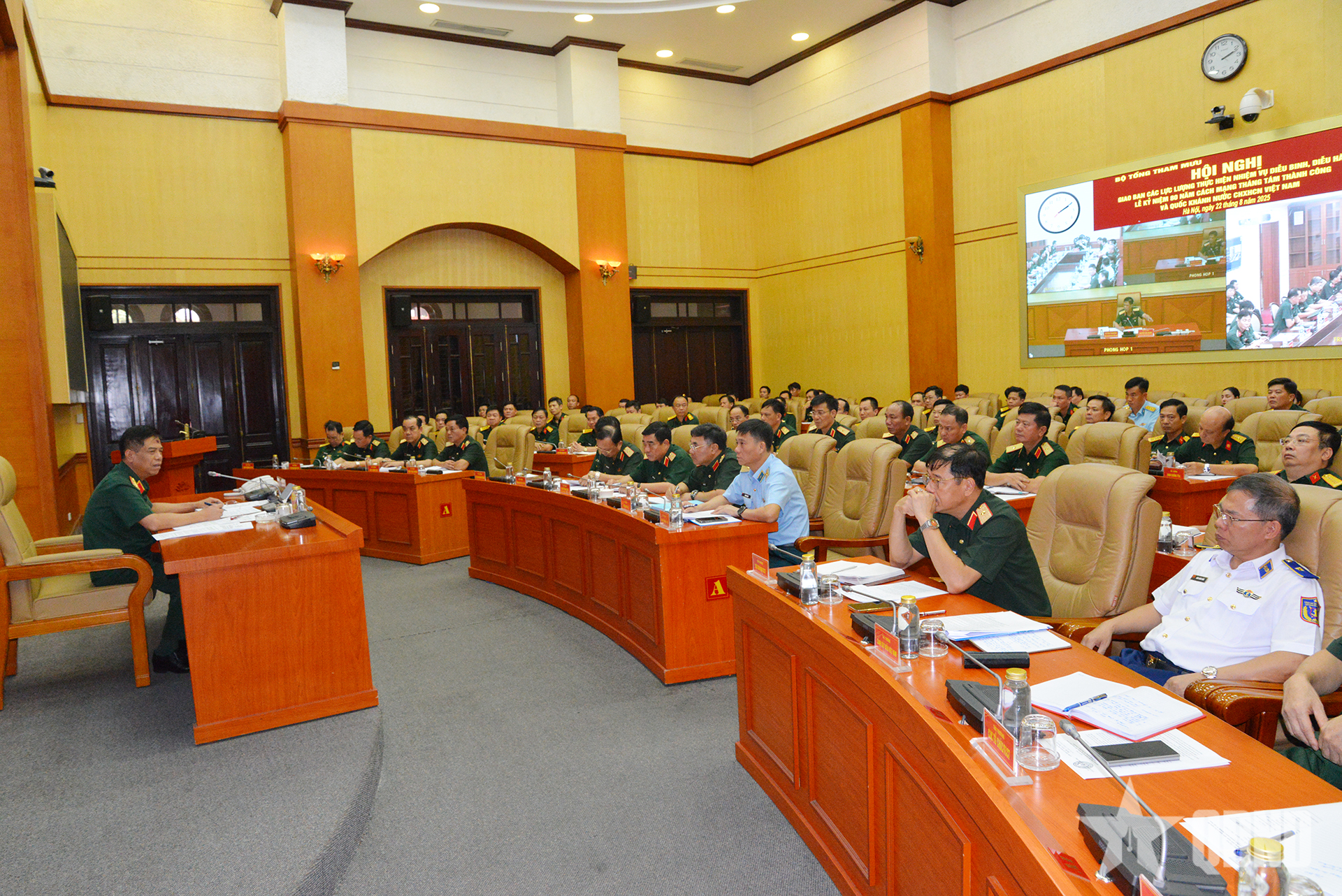
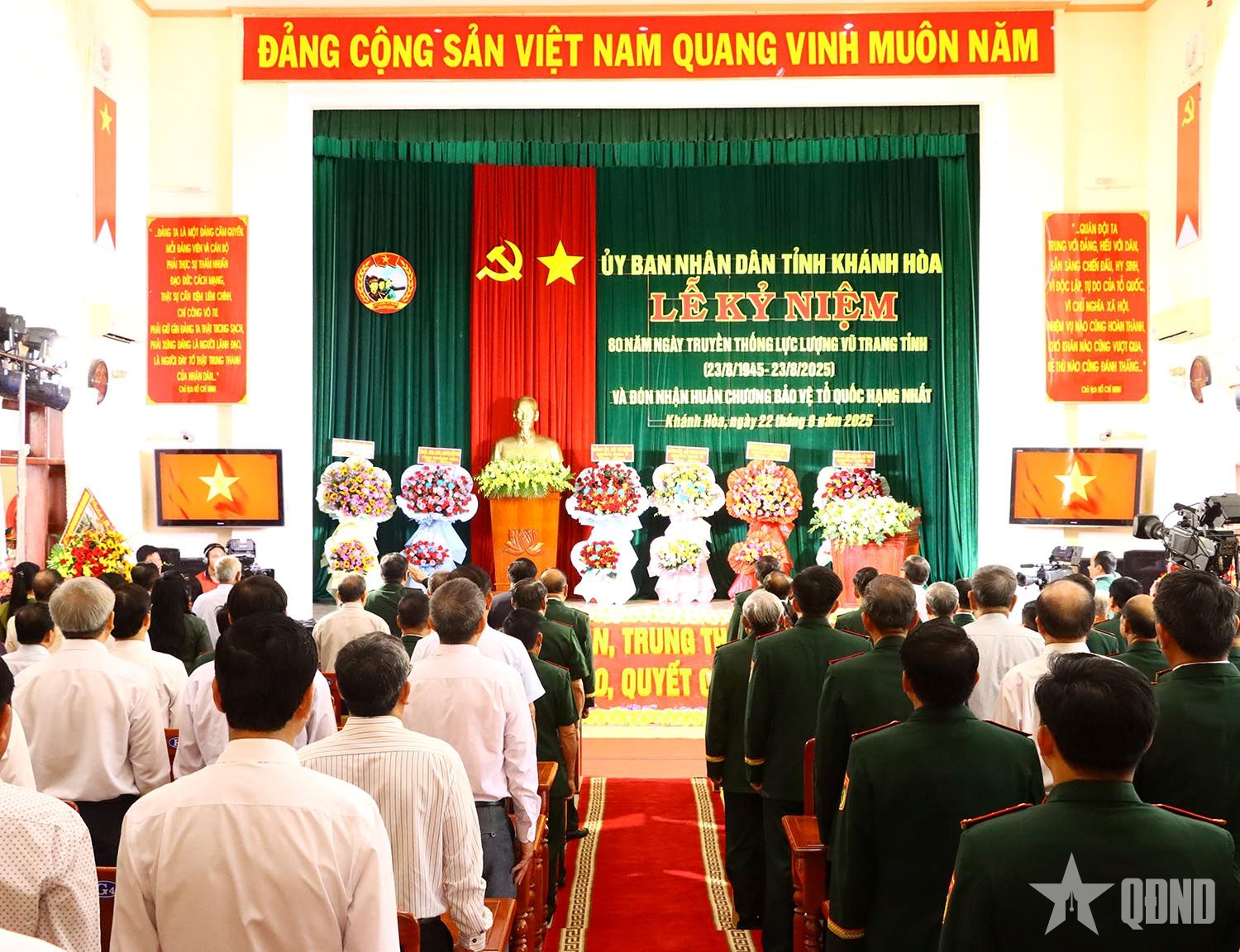
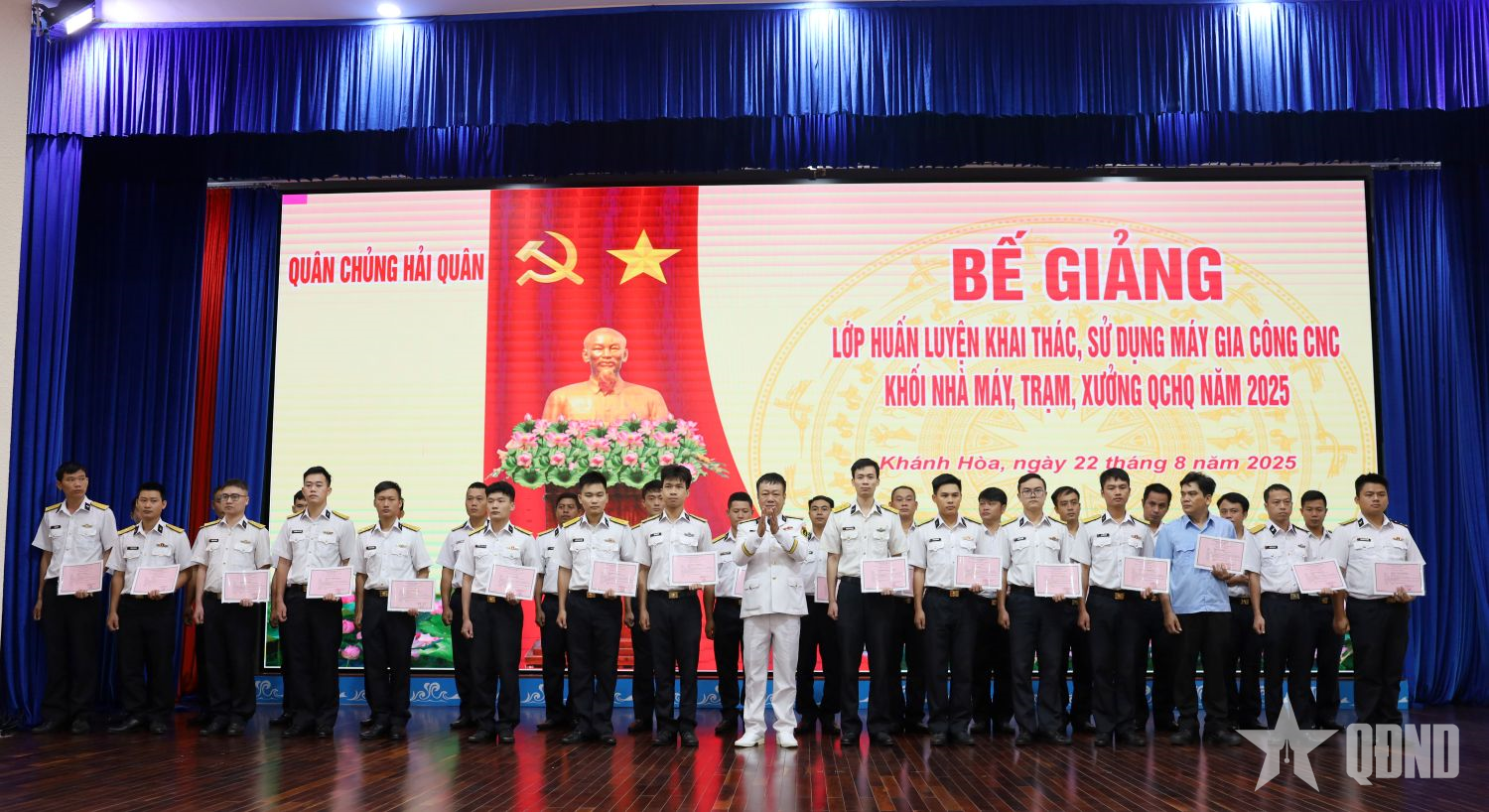




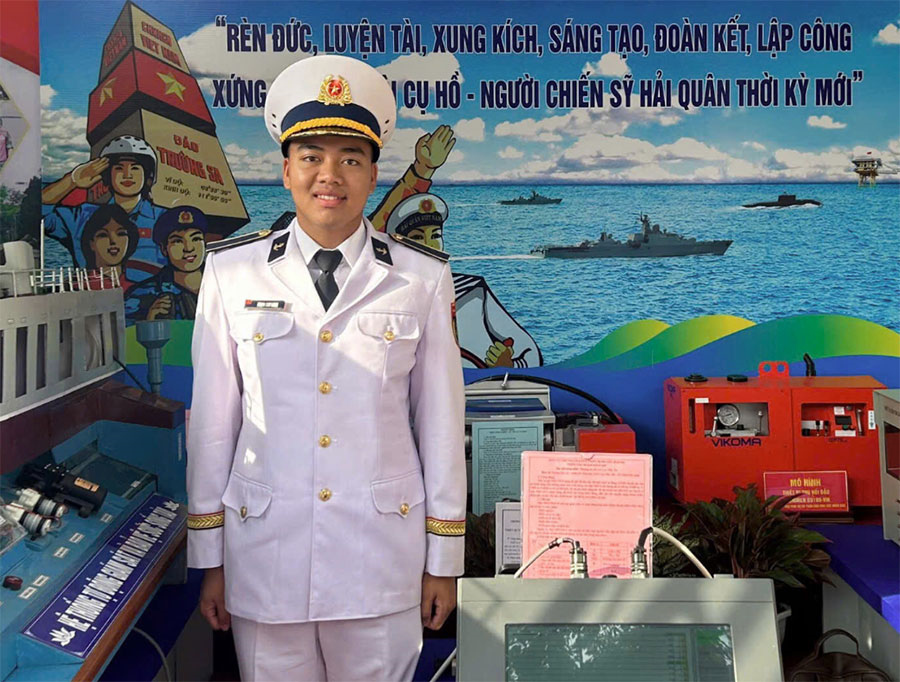

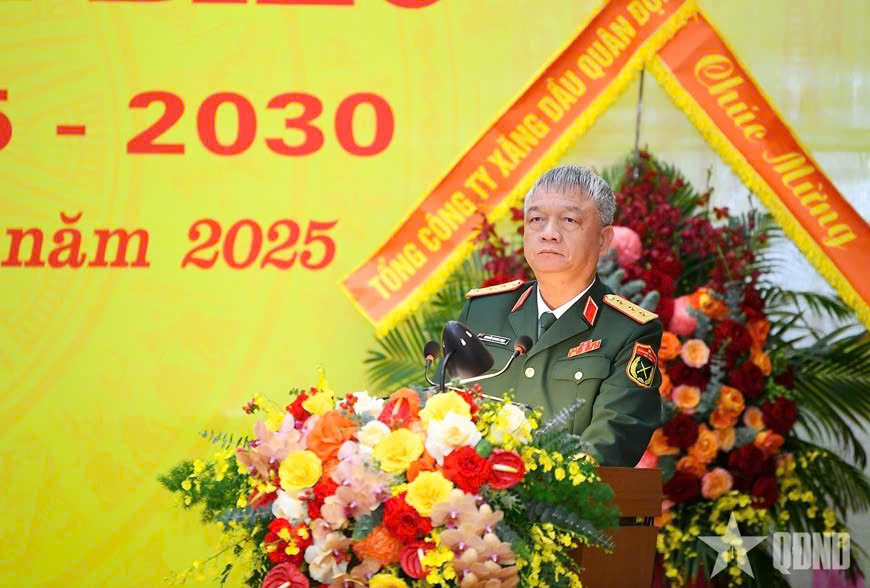
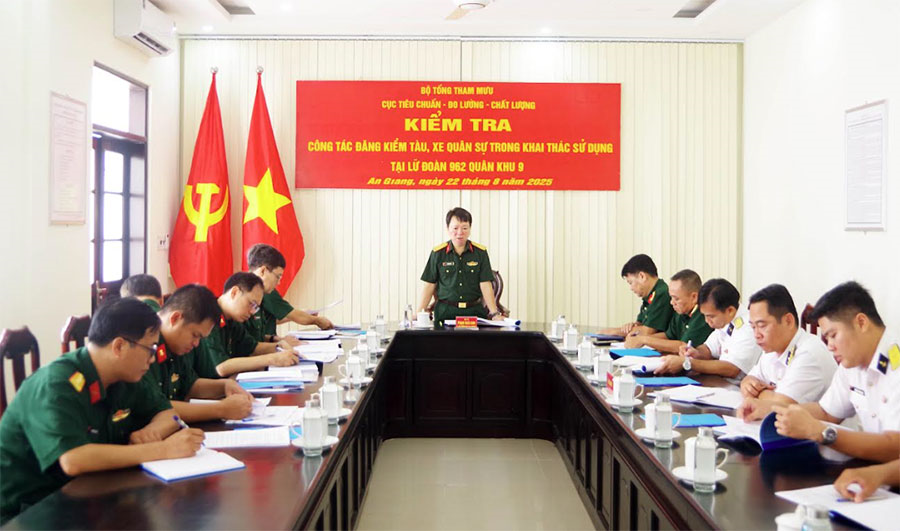

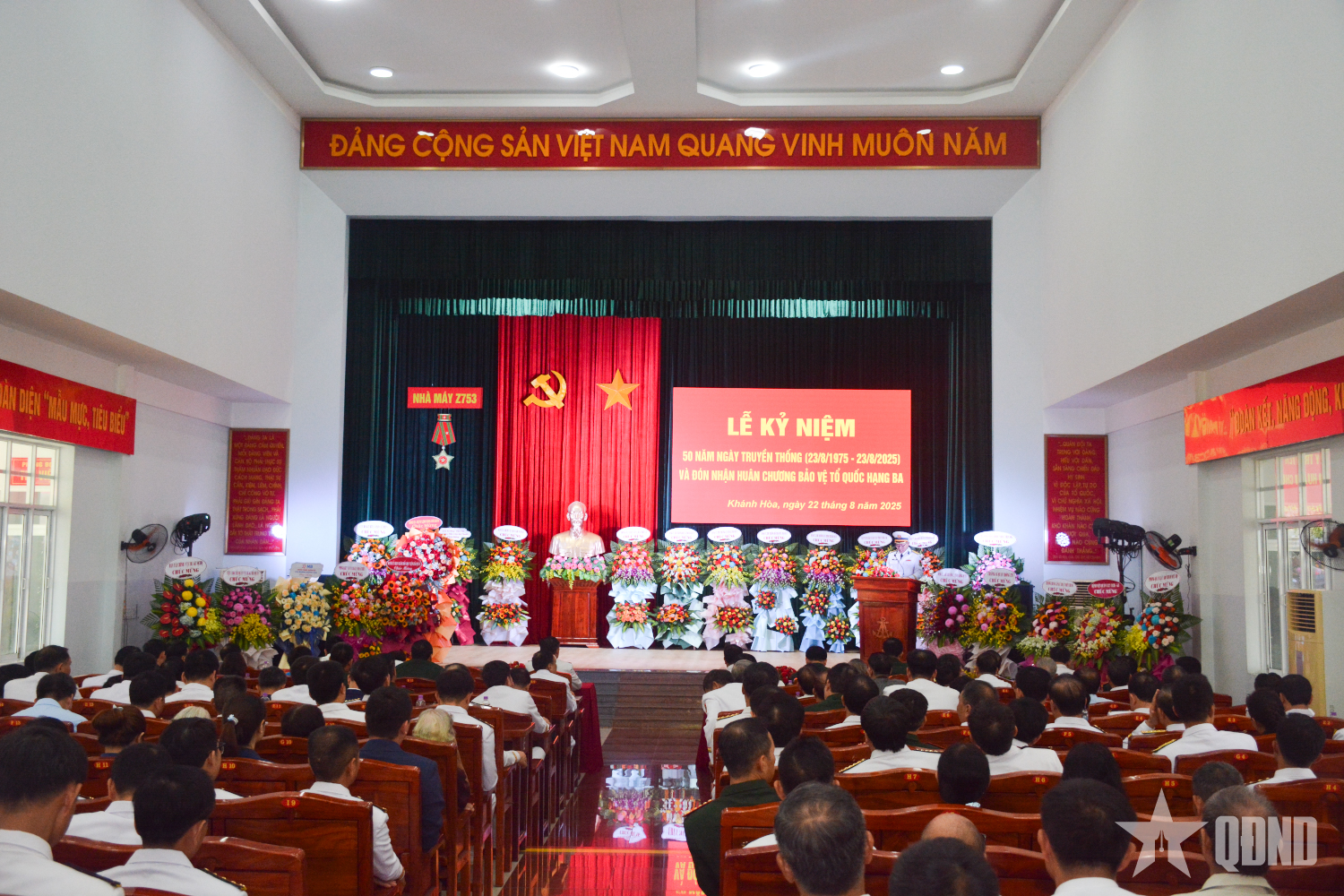

































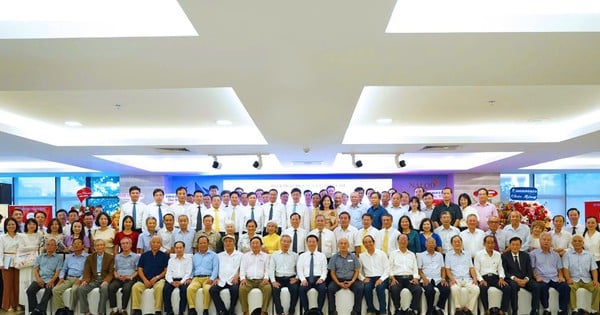

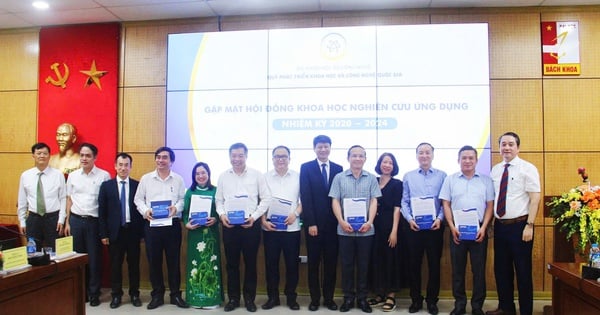





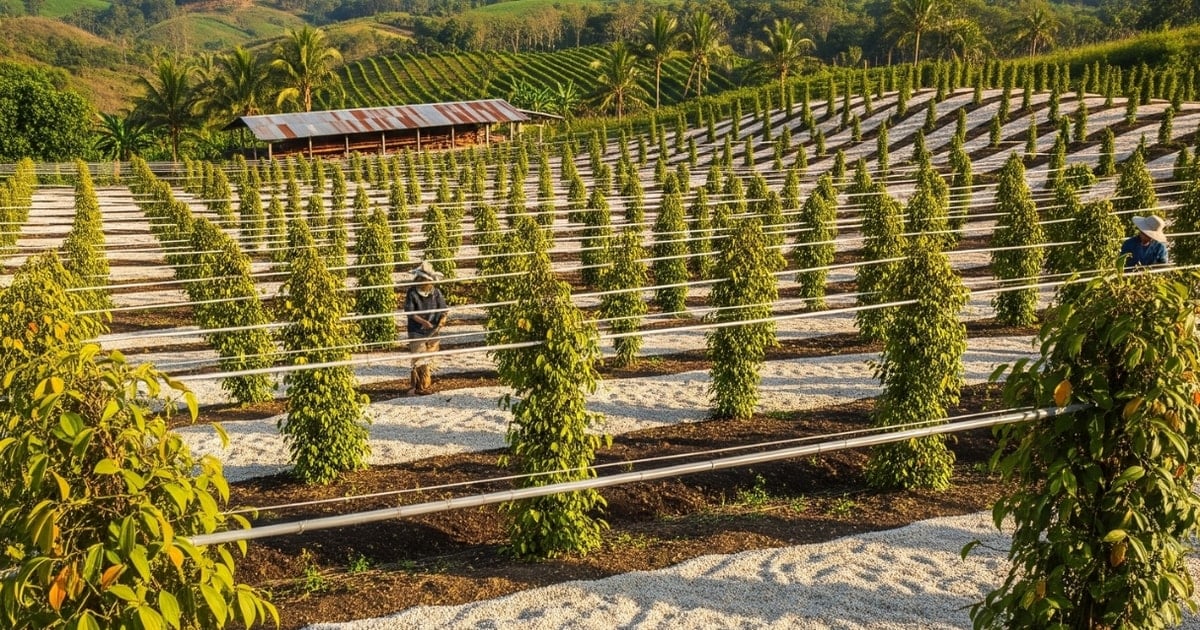



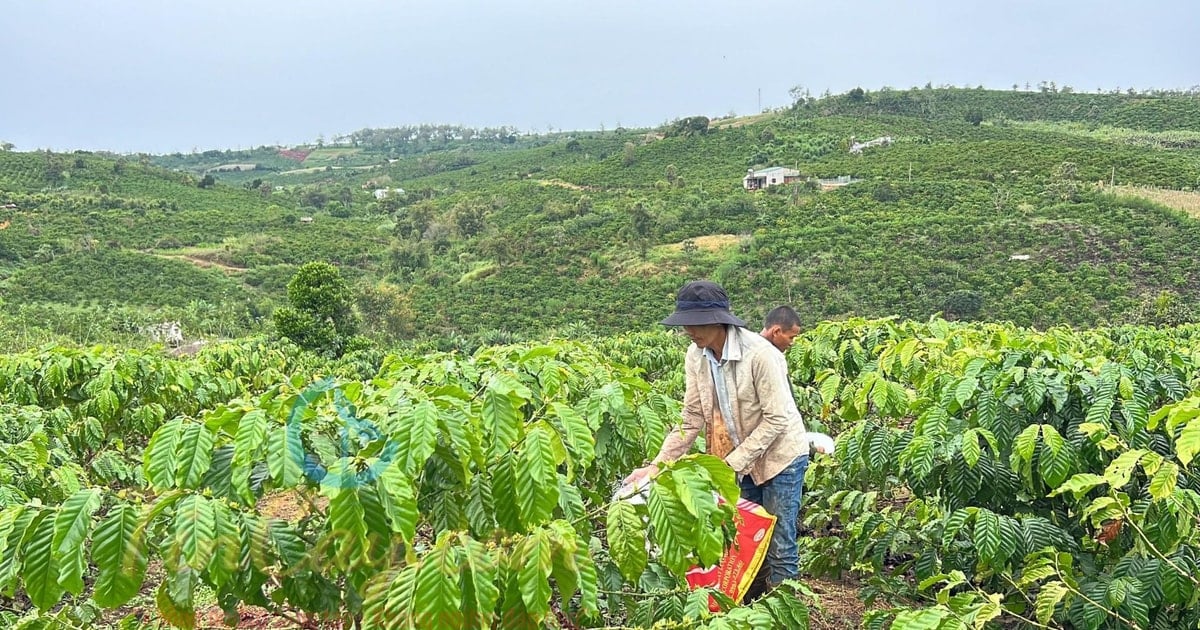
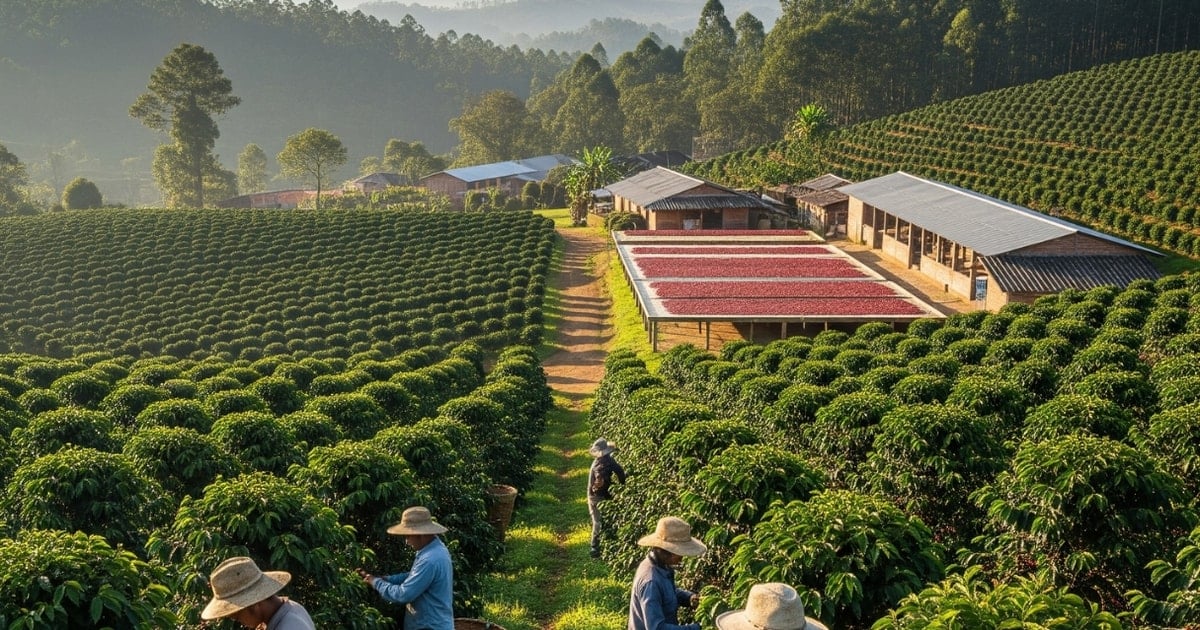
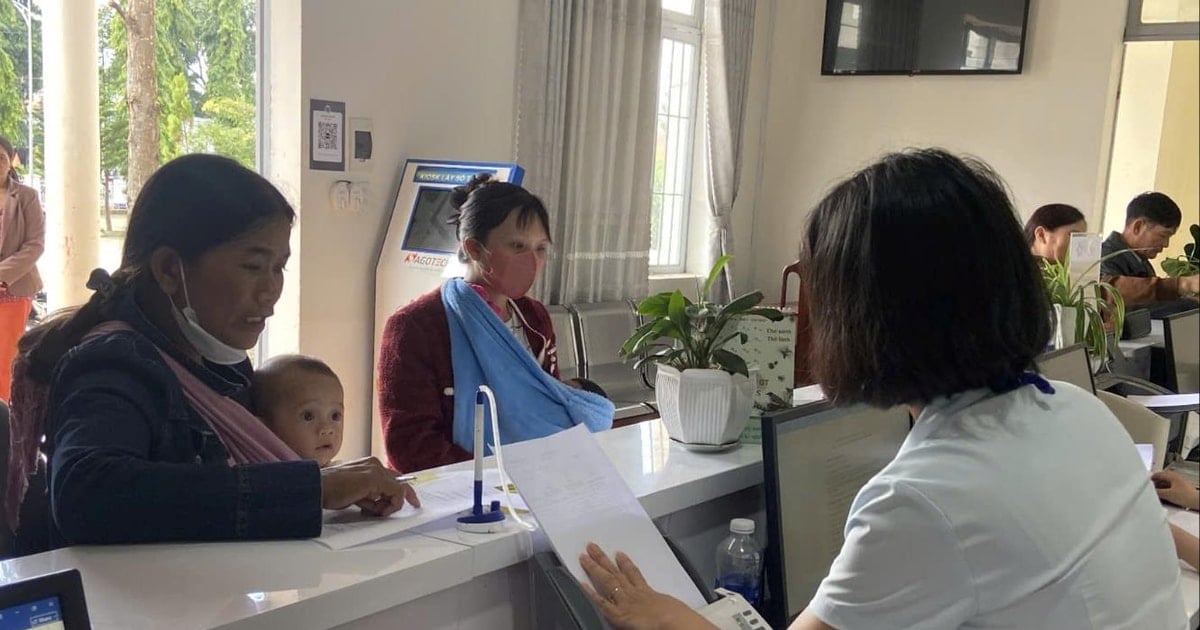
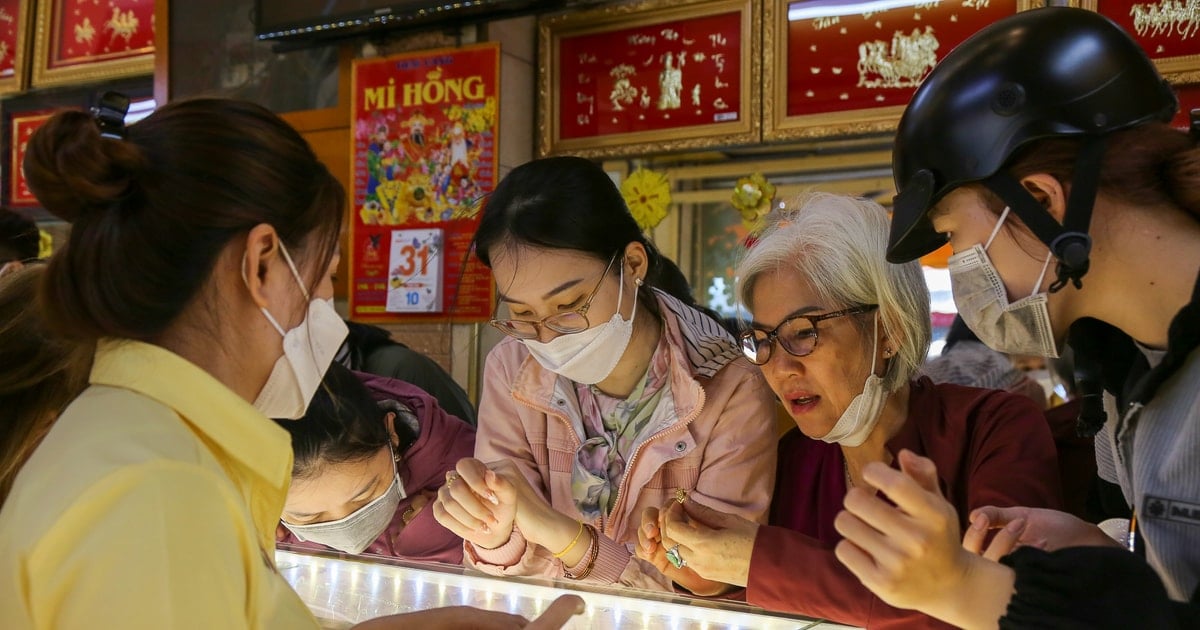















Comment (0)